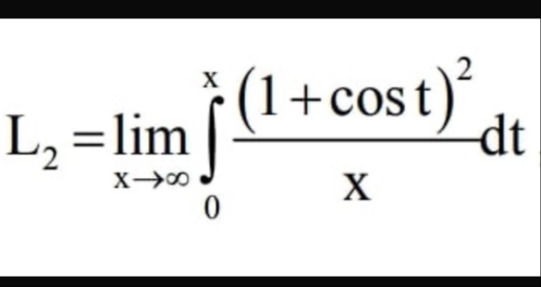Question
Question: $\L_2 = \lim_{x\to\infty} \int_0^x \frac{(1+\cos t)^2}{x}dt$...
\L2=limx→∞∫0xx(1+cost)2dt

Answer
3/2
Explanation
Solution
We need to evaluate:
L2=x→∞limx1∫0x(1+cost)2dt.-
Expand the integrand:
(1+cost)2=1+2cost+cos2t. -
Use the identity for cos2t:
cos2t=21+cos2t.So,
(1+cost)2=1+2cost+21+cos2t=23+2cost+21cos2t. -
Integrate term by term:
∫0x23dt=23x, ∫0x2costdt=2sint0x=2sinx, ∫0x21cos2tdt=21⋅21sin2t0x=41sin2x. -
Combine the results:
∫0x(1+cost)2dt=23x+2sinx+41sin2x. -
Divide by x and take the limit:
L2=x→∞lim(23+x2sinx+4xsin2x).As x→∞, the terms x2sinx and 4xsin2x approach 0. Thus,
L2=23.
Core Explanation:
- Expand (1+cost)2 and simplify.
- Integrate each term and divide by x.
- In the limit, oscillatory sine terms vanish.
